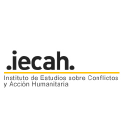WORKING WITH DG ECHO AS AN NGO PARTNER | FPA 2014 - 2020
FIELD AUDIT
The Partner implements the activities that DG ECHO has contracted to it by means of field projects. This is therefore an essential area of audit as this is where the real work is carried out by the Partner.
Audits cover financial and operational aspects of the projects. They imply with visits and testing at on-going projects, local or regional partner offices and various project locations, such as refugee camps, health structures and distribution points.
At present, these audits are undertaken primarily by the same externally contracted firm as for the HQ audits, minimally assisted by DG ECHO staff. They involve discussions with Partner's staff and beneficiaries.
Field audit involves a revision of data collected, to assess if expenditure is adequate and eligible. One of the key elements is to link the beneficiaries back to Partner’s administration. The beneficiary must be seen in distribution records and these must add up to the warehouse stock management systems. Key questions in this process are: does exit of warehouse follow entry into warehouse? Is warehouse entry properly tendered for of the right quality and according to needs established? This goes both ways: from needs assessment to procurement to warehousing to distribution to beneficiary and from beneficiary back to needs assessment.
OBJECTIVES OF FIELD AUDIT
The objectives of DG ECHO field audit are to provide assurance to DG ECHO that:
1) funds are used for purposes intended by ascertaining:
-
adequacy of internal control governing project activities
-
expenses tested are supported by evidence, incurred during eligibility period and properly accounted
-
existence of declared assets, stocks, leftovers
-
adequacy of procurement procedure and supporting documentation
2) operations are carried out in accordance with agreement by realising:
-
physical verification of implementation of activities
-
interviews with ECHO and NGO staff, implementing partners, beneficiaries, local authorities, other stakeholders
Furthermore it is important to underline that the beneficiaries are the key focus of field Audits and that one of the key elements is to link the beneficiaries back to Partner’s administration. The beneficiary must be seen in distribution records and these must add up to the warehouse stock management systems. Key questions in this process are: does exit of warehouse follow entry into warehouse? Is warehouse entry properly tendered for the right quality and according to needs established? This goes both ways: from needs assessment to procurement to warehousing to distribution to beneficiary and from beneficiary back to needs assessment.
PLANNING OF FIELD AUDIT
Field Audit planning is based on the Provisional Plan. This Provisional Plan is prepared yearly as part of the annual audit plan established by DG ECHO. It identifies the countries to be covered and Partners to be audited and includes 8 – 9 batch contracts per year (each batch consisting in one or more operational field audits in the same beneficiary country/region).
The Provisional Plan may change during the year due to: selected Partner doesn’t work in the country anymore, the funding for selected country diminishes, security risks, access/visa problems, etc
SELECTION PROCEDURE
Partners to be audited at field level are selected on the basis of
-
the country of the Action,
-
the date of previous field audits,
-
the value of total ECHO funds awarded,
-
the number of individual grant agreements,
-
the perceived risk (based on inputs from desks and/or experts) and
-
specific findings at HQ audits.
PHASES OF FIELD AUDITS
Before the signature of the specific agreements, DG ECHO External Audit Sector verifies potential conflicts of interests of the chosen audit firm, to grant independence. After that, the agreement can be signed: the date of signature sets the starting point for the field batch which normally lasts 9 months. In this time, auditors have to organise, plan and carry out the audit and deliver reports. Partners have 1 month to reply and DG ECHO has 1 month to review it.
The opening letter is sent by DG ECHO, who informs the Partner that an audit will be carried out; in case of externally contracted audits, the Partner will be informed accordingly. After the opening letter, all direct contacts will be undertaken by external auditors. The opening letter officially sets the initial date of the field audit.
The externally contracted auditors get background information on the Partners and the projects to be audited from different sources: DG ECHO desk officer; DG ECHO External Audit Sector (e.g. previous audit reports); DG ECHO Partner; other sources like internet (general information on the country or the Partner) and press. More specifically the information gathered from DG ECHO includes: Grant Agreement (and amendments); Single Form; Previous HQ and field audit reports; any other useful information.
After this, the Audit contractor sends the Opening Letter containing the Internal Control Questionnaire (ICQ).
When the Auditors arrive in the country, they usually start their field work with an initial meeting with all DG ECHO Partners to be audited. The aim of this meeting is to present reasons, objectives, methodology of the audit and to define the detailed programme for the fieldwork. Logistical details can also be discussed during this meeting.
Then the auditors will visit Partner's country office, where for all budget lines a number of transactions can be tested; the testing includes verification of validity of transactions, original supporting documents, accounting entries, procedural requirements, verification of cash and bank accounts, etcetera. During this visit, the internal control systems in place are also checked.
Another important part of the audit is the visit to the Action location, the physical verification of the action includes checking if the Partner did what was foreseen by the Agreement, verifying if beneficiaries can be traced, and so on.
Around 4-6 weeks after the field visit the draft audit report is submitted to the Partner for comments and correction of factual errors and, finally, the report, including Partner's comments, is sent to DG ECHO for final approval. As soon as the report becomes final, it is transmitted to the Partner and distributed to all relevant stakeholders inside DG ECHO.





